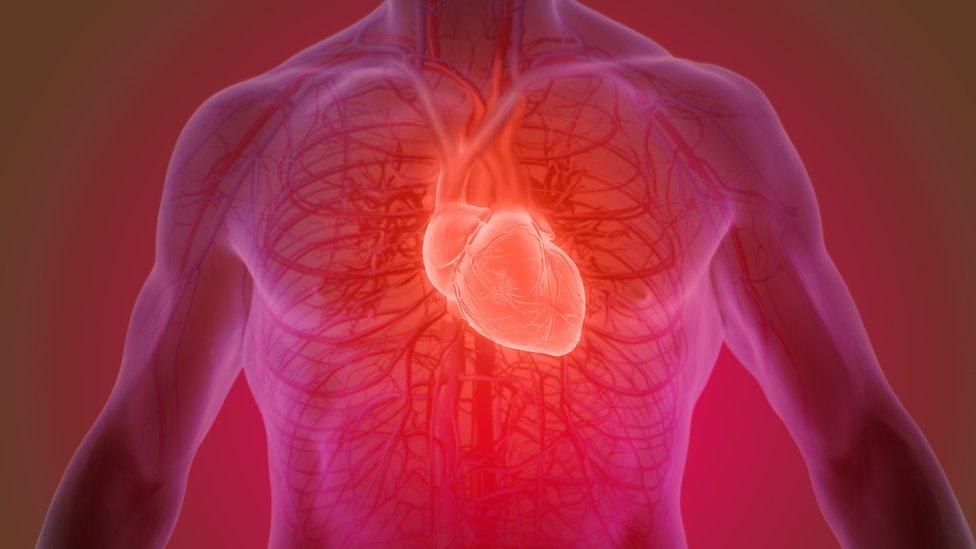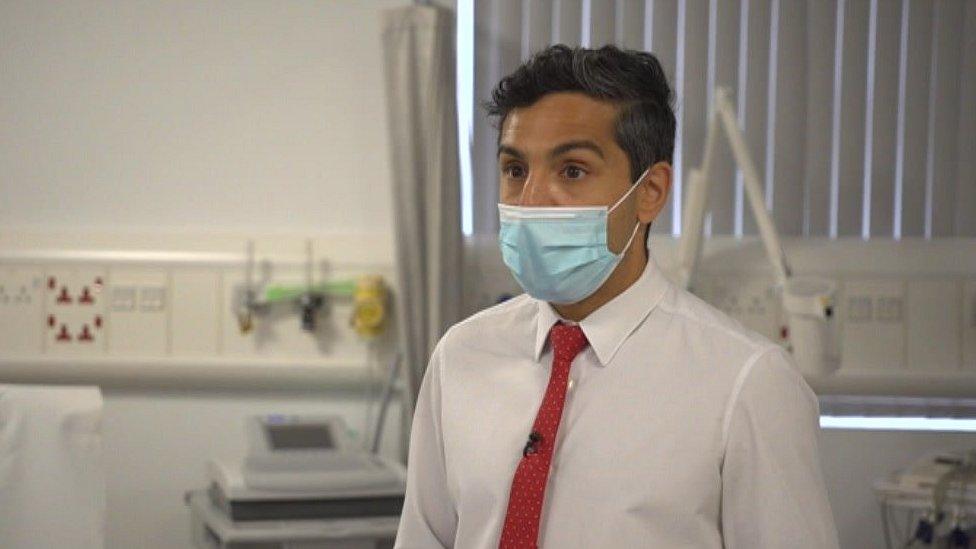University of Leeds study to examine impact of endurance sport on heart health
- Published

The University of Leeds study involves a device approximately half the size of a pen being implanted under the skin on the participant's chest to monitor the heart
A two-year study involving more than 100 men will look at the impact of endurance sports on the heart.
The University of Leeds project will see the men, all aged over 50, fitted with a small monitor under the skin on their chest to record their heartbeat.
The British Heart Foundation (BHF) wants to find if heart scarring in some athletes is linked to abnormal rhythms.
It is hoped the results will inform future research around ways to avoid heart damage in sport.
The charity, which funded the £320,000 project, said heart scarring is a "key feature" of many heart diseases and has a strong association with abnormal heart rhythms, which can cause a life-threatening cardiac arrest.
A similar, previous study found that around half of those monitored developed scarring on their heart, though the exact cause was unclear.
It is thought it may be a result of their levels of exercise, as the heart must work harder to pump blood during endurance sports like long-distance running and cycling, the BHF said.

Gethin Davies-Jones, 55, is one of the 106 men signed up for the two-year heart study
Among the 106 male participants, who all exercise for more than ten hours a week, is 55-year-old Welsh cyclist and runner Gethin Davies-Jones, who lost two close family members to heart problems.
Mr Davies-Jones, who lives near Caerphilly, said: "The experience I've had in my life of losing my mum, when I was young, and my brother, who I felt was a young man even, though he was the age I am now, has had a dramatic impact on my life.
"I would hate for other people to have to suffer that.
"That's why my interest in this study is so immediate and deep, as it will help me understand more about my own heart health."

Gethin's mum, Helen Jones, died from a cardiac arrest in her late 40s while his brother, Glyn Jones (pictured alongside Gethin), died aged 55 after living with undiagnosed coronary heart disease
Dr Peter Swoboda, consultant cardiologist and lead researcher, said: "We find scarring in lots of different conditions in cardiology, occasionally it can be associated with dangerous heart rhythms.
"With endurance athletes, what we don't know is if scarring is associated with dangerous heart rhythms or if it's an innocent bystander, and that's the purpose of the study."

Dr Peter Swoboda emphasized that exercise is good for the heart, but warned that recent studies suggest that people who participate in long term endurance sport "could lose the health benefits of exercise"
The men will also undergo MRI scans to look for signs of scarring and assess heart function, alongside blood and fitness tests.
The BHF said physical activity can reduce the risk of heart and circulatory diseases, helping to control your weight and reduce blood pressure and cholesterol levels.
It said the study will look to help athletes of all ages "participate in sport as safely as possible".
"It's really exciting, recording people's heart rhythms while they are training and trying to predict disease before it happens is something nobody has ever taken on before," Dr Swoboda added.

Follow BBC Yorkshire on Facebook, external, Twitter, external and Instagram, external. Send your story ideas to yorkslincs.news@bbc.co.uk, external.
- Published7 September 2019
